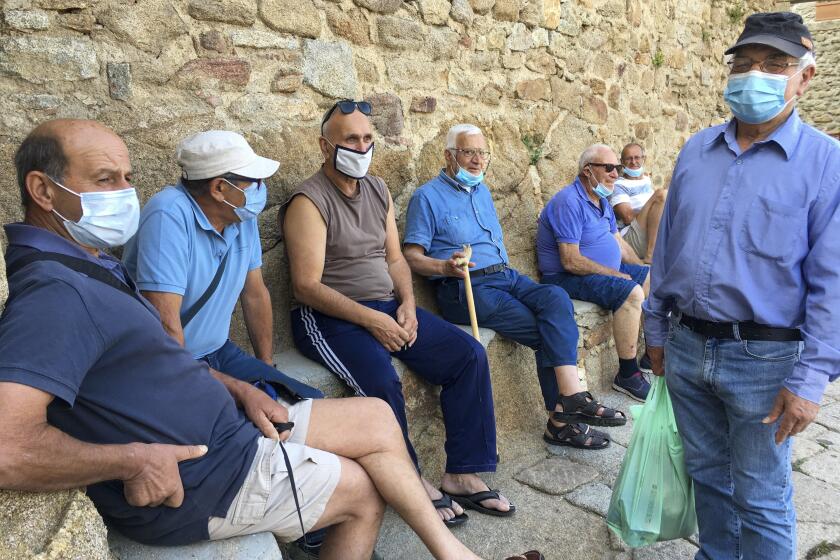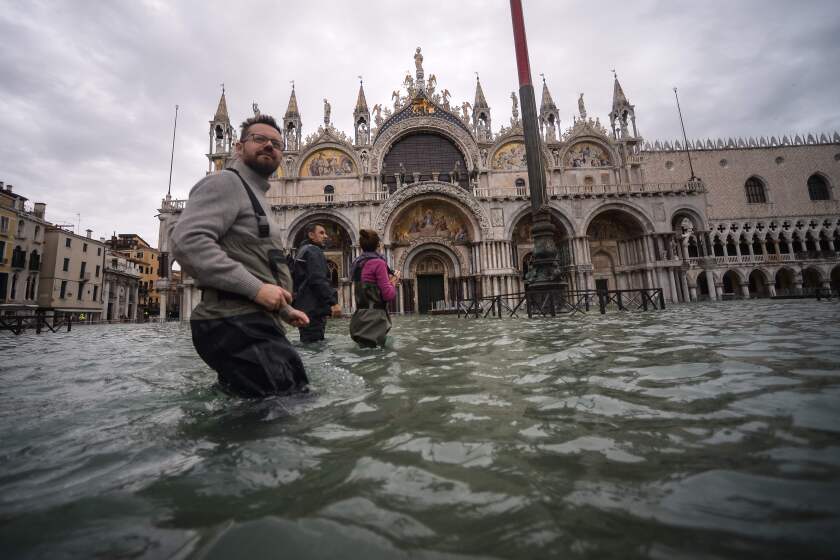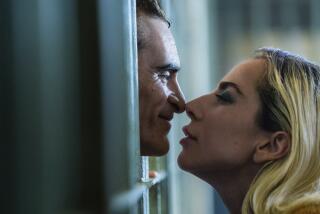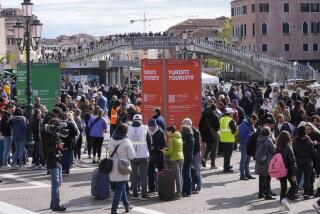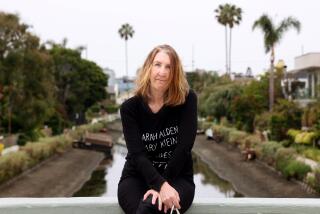Venice in the spotlight as 1st film festival of coronavirus era gets ready to open
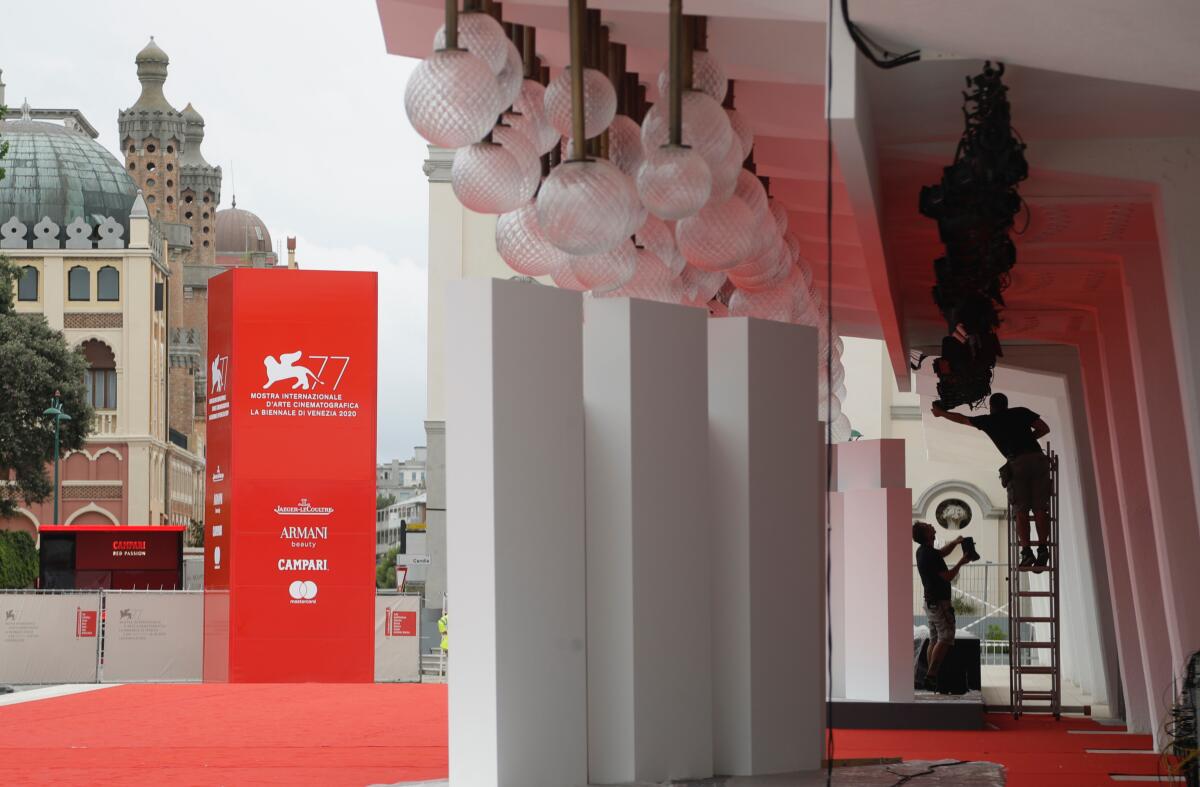
ROME — Venice is reasserting its claim as a top cultural destination with the opening of the Venice Film Festival — the first major in-person cinema showcase of the coronavirus era after Cannes canceled and other international festivals opted to go mostly online this year.
But don’t be fooled. The 77th edition of the world’s oldest film festival, which opens Wednesday, will look nothing like its predecessors.
The public will be barred from the red carpet, Hollywood stars and films will be largely absent and face masks will be required indoors and out.
Those strict measures are leftovers of the hard line Venice and the surrounding Veneto region took to contain the coronavirus when it first emerged in the lagoon city in late February. Unlike neighboring Lombardy, which became the epicenter of the COVID-19 outbreak in Europe at the time, Veneto largely kept the coronavirus under control with early local lockdowns and broad testing once the virus was widespread.
La Biennale chief Robert Cicutto said the decision to hold the festival at all was an important sign of rebirth for Venice and the film industry, and said the experience on the Lido will serve as a “laboratory” for future cultural gatherings.
“It will be an experiment on the ground” in putting on an important event in the COVID-19 era, Cicutto said in presenting this year’s Venice lineup.
Mainlanders infected with the coronavirus have come ashore on Italy’s tiny Giglio Island, but no islanders have taken ill, mystifying a scientist.
The festival running through Sept. 12 marks Italy’s return to the art world stage after it became the first country in the West to be slammed by the coronavirus. Even Tom Cruise’s “Mission: Impossible 7,” in Venice at the time for three weeks of filming, had to pull out.
Italy’s strict 10-week lockdown largely tamed the virus, but infections are now rebounding after summer vacations. Health authorities are scrambling to test passengers at airports and seaports to try to identify imported cases before they can spread.
Guests to the glamorous film festival are not exempt. If they arrive from outside Europe’s open-border Schengen area, they will be tested upon arrival. Other measures to limit contagion include reserved seats, spaced apart, for all screenings and a requirement to wear masks even during screenings outdoors.
“Clearly we have to abide by anti-COVID measures,” said Paola Mar, Venice’s culture chief. “Each of us has a personal responsibility. And if all of us do our jobs, we can limit the harm.”
‘The Mafia is always ready to intervene in moments of opportunity,’ one prosecutor said.
But she said the show must go on, given the importance of the film festival and the Biennale’s other longer-term cultural contributions to Venice’s economy, which depends almost entirely on tourism.
Restrictions on travel from the U.S. to Europe have meant that Hollywood films, which often use Venice as a springboard for other festivals and ultimately the Oscars, are essentially no-shows this year.
That means no sightings of Venice regulars George Clooney and Brad Pitt arriving by water taxi; no red carpet photo ops with Lady Gaga, whose “A Star Is Born” premiered here; or Joaquin Phoenix, whose “Joker” won Venice’s top prize, the Golden Lion, last year before going on to Oscar glory.
This year’s slightly reduced lineup still contains in-competition films from a variety of countries, but will be a mostly European affair. Italian films are well-represented, including the first Italian opening-night film in years, the out-of-competition family drama “Lacci” by Daniele Luchetti.
Get our daily Entertainment newsletter
Get the day's top stories on Hollywood, film, television, music, arts, culture and more.
You may occasionally receive promotional content from the Los Angeles Times.
Two Italian documentaries filmed during lockdown are making their debuts. Andrea Segre’s “Molecules,” a haunting study of an empty, ethereal Venice, premieres as the festival’s pre-opening film Tuesday. And director Luca Guadagnino, whose documentary about Italian shoemaker Salvatore Ferragamo is an official out-of-competition film, offered up a last-minute short, “Fiori, Fiori, Fiori!,” about reconnecting with his childhood friends in Sicily during the lockdown.
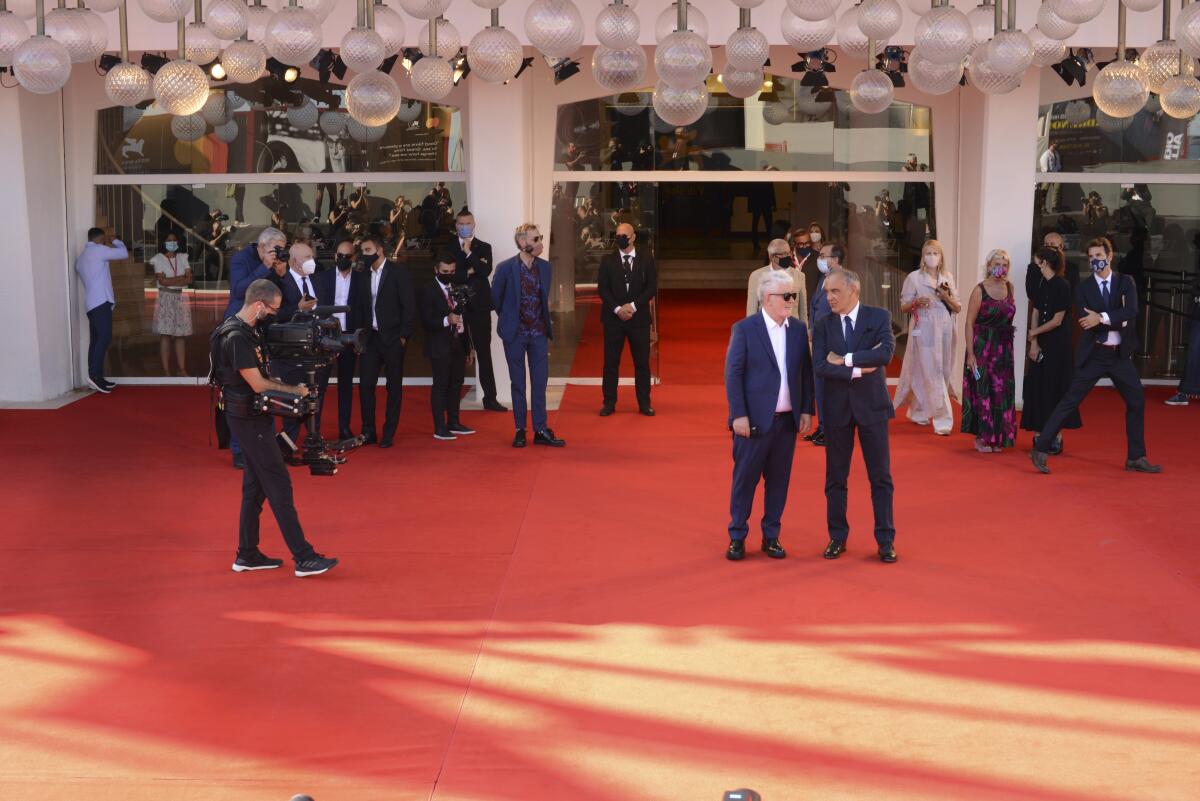
Spanish director Pedro Almodovar is premiering his first-ever English-language film, “The Human Voice,” which he filmed and edited in the weeks after Spain’s lockdown ended. The short film, an adaptation of the Jean Cocteau play of the same name, stars Tilda Swinton, who will be picking up a Golden Lion Lifetime Achievement award in Venice this year.
Cate Blanchett heads the main jury, which added Matt Dillon at the last minute after Romanian director Cristi Puiu pulled out.
The high-water mark hit 74 inches in Venice, flooding 85% of the city, including St. Mark’s Basilica. One man died on the barrier island of Pellestrina.
But other A-list celebrities are largely staying away. Venice itself still has a long way to go to recover from the economic devastation of a pandemic, the halt to cruise ship stops and a lockdown on a city beloved by the jet set.
All this happened after Venice was already brought to its knees by the historic “acqua alta” floods last November, which raised deep questions about how the city will survive as climate change and rising sea levels increase as threats.
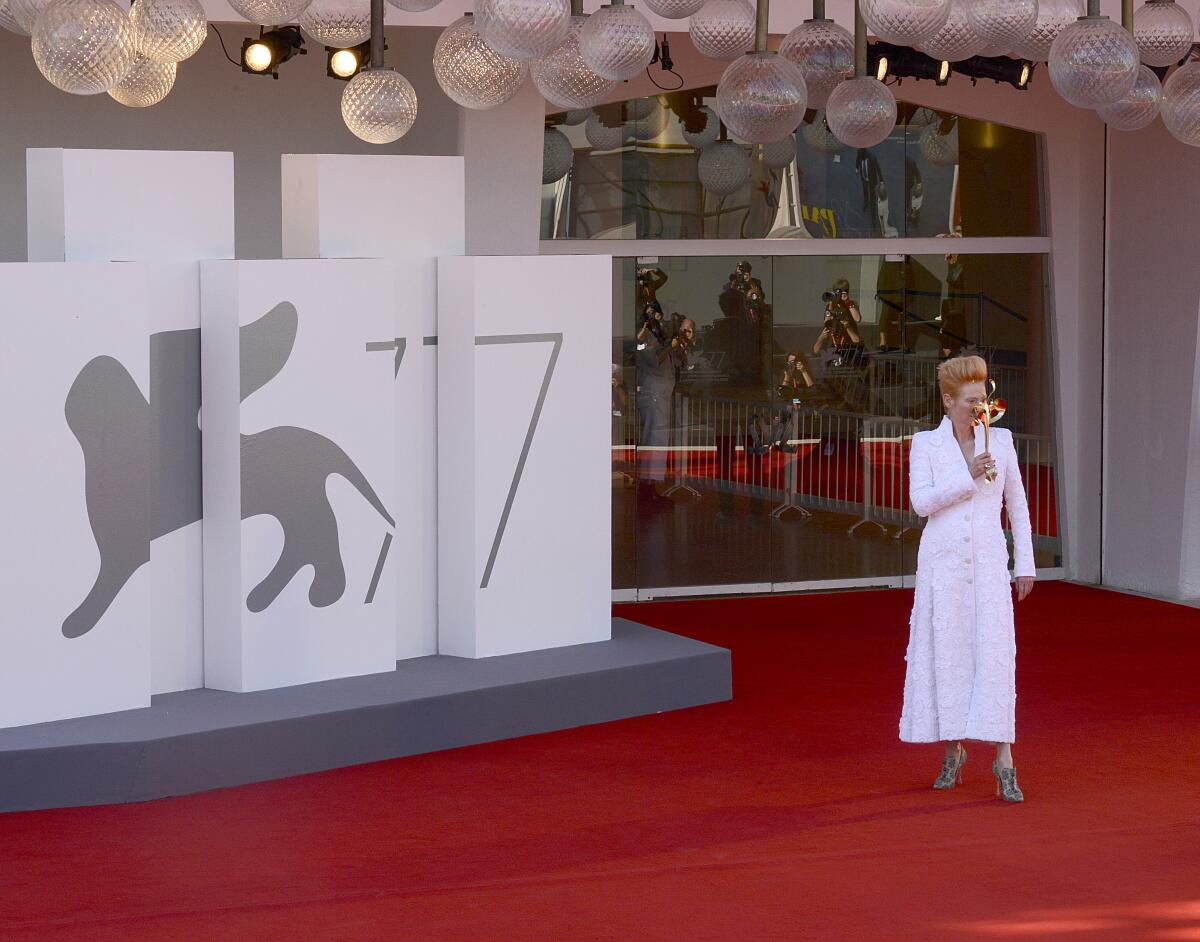
“The city hasn’t worked since November,” said gondolier Maurizio Carlotto. “There’s nothing. Absolutely nothing. The hotels that are open are half-empty. You look at the restaurants at night, they’re empty.
“To relaunch Venice, and tourism in general, we need this virus to end,” he said, looking out at an eerily empty canal. “They have to find the antidote.”
More to Read
The biggest entertainment stories
Get our big stories about Hollywood, film, television, music, arts, culture and more right in your inbox as soon as they publish.
You may occasionally receive promotional content from the Los Angeles Times.
